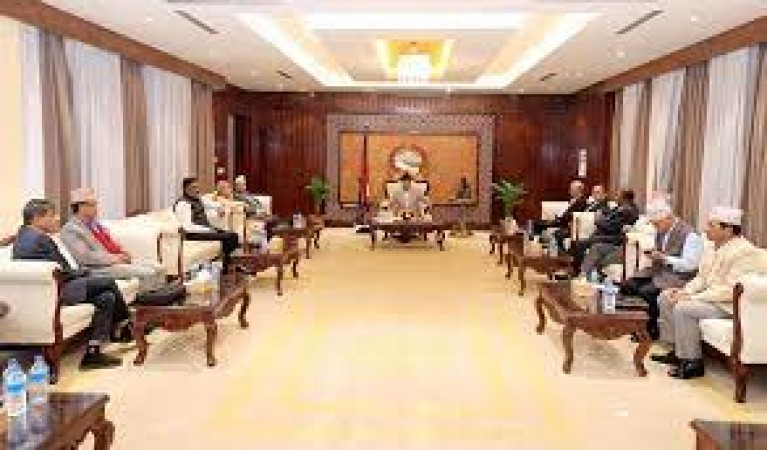
In the realm of politics, alliances play a crucial role in shaping the course of nations and the decisions that impact the lives of millions. The concept of alliances within political parties is an age-old phenomenon that has both positive and negative implications. This article delves into the significance of alliances, the support they provide, and the pertinent issue of infiltrators that can plague political parties.
1. Understanding Political Alliances
1.1 What are Political Alliances?
Political alliances are strategic partnerships formed between two or more political parties to achieve common goals. These alliances are based on shared interests, ideologies, or the pursuit of power and governance. They can occur at the local, national, or even international levels, depending on the political landscape and the issues at hand.
1.2 The Importance of Alliances
Alliances offer political parties several advantages. Firstly, they allow parties to pool their resources and expertise, making them stronger together than they would be as individual entities. Secondly, alliances can broaden a party's appeal to a wider voter base, potentially increasing their chances of electoral success. Thirdly, alliances facilitate the exchange of ideas and policy frameworks, promoting healthy debate and improving governance.
1.3 Challenges Faced by Political Alliances
However, alliances are not without challenges. Often, parties involved in an alliance have differing priorities and agendas, leading to internal conflicts and compromises that may weaken the coalition. Maintaining a cohesive vision and ensuring all parties are on the same page can be arduous.
2. The Role of Support in Political Alliances
2.1 Support Mechanisms within Alliances
Support mechanisms are the foundation on which political alliances thrive. These mechanisms include financial backing, manpower, and public endorsement. Financial support helps parties run effective campaigns and reach a wider audience. Manpower support involves mobilizing volunteers to engage with voters on the ground, creating a strong grassroots network. Public endorsements from influential figures or celebrities can lend credibility and garner public trust.
2.2 Leveraging Support for Mutual Benefits
Political parties within alliances utilize support in a symbiotic manner. While smaller parties gain much-needed resources and visibility, larger parties benefit from increased local influence and access to niche voter segments. Mutual support strengthens the coalition, providing a united front to address social, economic, and political challenges.
3. The Issue of Infiltrators within Political Parties
3.1 Understanding Infiltration
Infiltration refers to the entry of individuals with ulterior motives into political parties. These infiltrators may join with the intention of destabilizing the party or advancing their own interests. Infiltrators can be agents of rival parties, extremist groups, or entities seeking to manipulate policies for personal gains.
3.2 Challenges Posed by Infiltrators
The presence of infiltrators poses significant challenges to political parties. They can disrupt internal harmony, sow seeds of discord, and leak sensitive information to adversaries. Infiltrators may also misrepresent the party's ideology and tarnish its reputation. Identifying and weeding them out is crucial to maintaining the integrity of the party.
4. Mitigating Infiltration Risks and Ensuring Party Cohesion
4.1 Robust Screening and Vetting Processes
To counter infiltration, political parties need to establish stringent screening and vetting processes for new members. This involves conducting thorough background checks and verifying potential members' affiliations and intentions.
4.2 Promoting Transparency and Accountability
Transparency and accountability are essential in preventing infiltration. By promoting openness within the party, members are encouraged to report suspicious activities or individuals, creating a culture of vigilance.
4.3 Strengthening Party Ideology and Unity
A strong party ideology and unity among members can deter infiltrators, as they will find it challenging to impose their agendas on a cohesive group. Regular party meetings, workshops, and seminars can reinforce shared values and beliefs. Alliances are powerful instruments in the political landscape, enabling parties to achieve collective goals and serve the people better. However, the issue of infiltrators poses a constant threat to the integrity and functionality of political parties. By recognizing the importance of alliances and adopting measures to safeguard against infiltration, parties can emerge stronger and continue to be the driving force of change.
Lok Sabha adjourned as Oppn Demands Discussion on Manipur Crisis
Ukraine's Culture Minister Offers to Step Down Amid Wartime Spending Concerns
Mallikarjun Kharge: Looking at a Visionary Leader on His Birthday, July 21